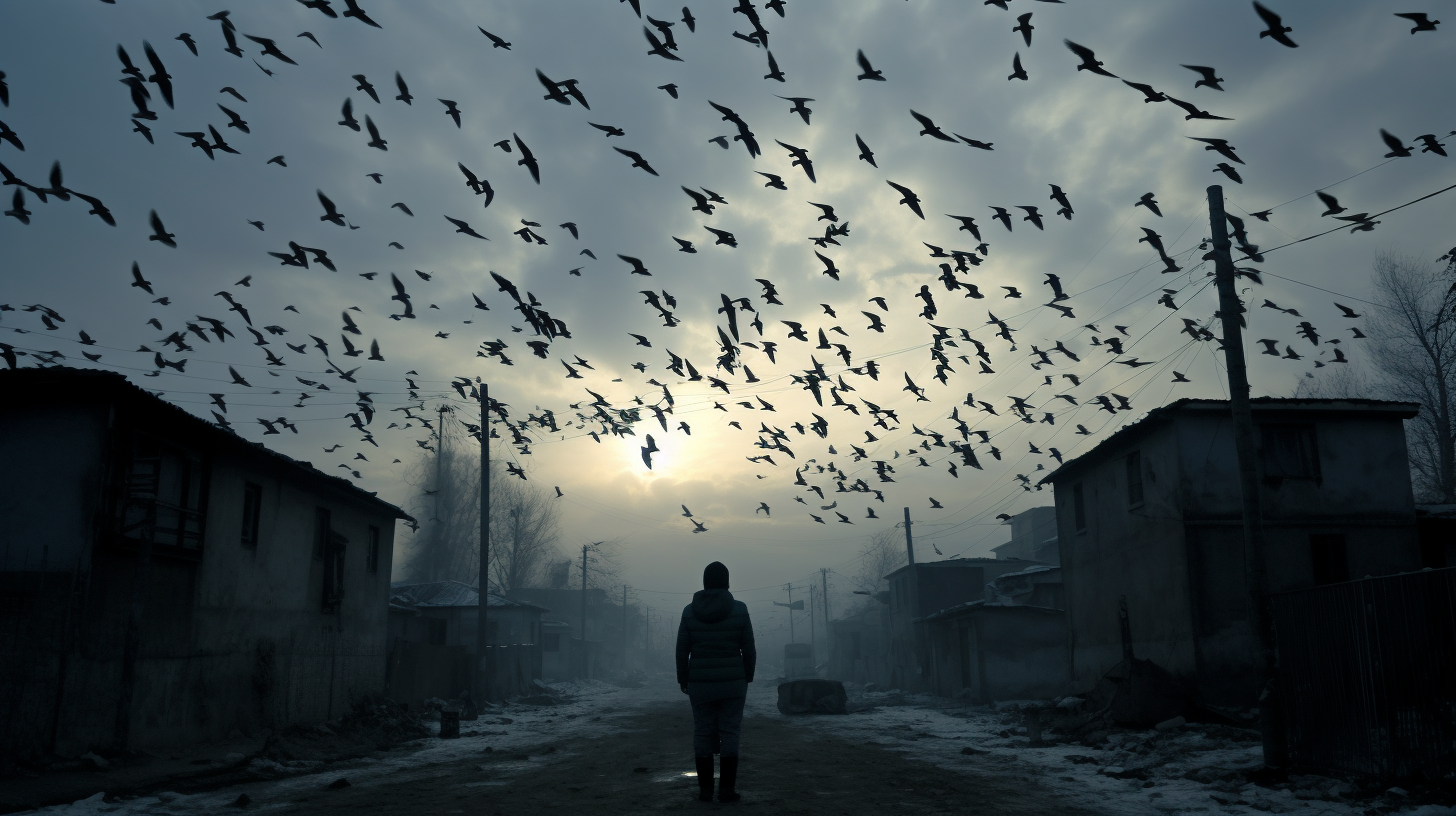The heavens once danced to the melodic cadences of winged troubadours, filling the air with the liberated anthems of nature’s unrivaled composers. However, as the days draw on, our skies have grown silent, heralding an era of solitude. This stark quietus is the theme of our reflection today as we delve into the haunting disappearance of the world’s songbirds, the last vestiges of aviary melodies once abundant and now teetering on the brink of oblivion. We explore what this means in our desolate, Green Dystopia, a world gasping for the poetry once inscribed in every dawn by these feathered minstrels.
A Symphony Unraveling
Witnessing the emptying of our skies is to observe a symphony mid-note, the baton fallen, the harmony fractured. The songbirds, those that once chorused at every sunrise, are departing, and with them, the soul of the Earth’s natural soundscape. Their exodus is not of natural volition but one orchestrated by unchecked human intervention and catastrophic climate anomalies. The woven nests are abandoned, not for migration, but for the silence of extinction.
As noted in our previous commentary, ‘The Day the Birds Stopped Singing,’ scientists like Dr. Jacob Hartley lament the sheer scale of this ecological calamity. The psychological impact alone—the reality of waking to a tapestry of silence rather than the hopeful songs heralding morning’s light—is a concept too grave to dismiss.
A Lament for the Lost
Among the barren branches and the wind’s whisper, we can still recall the lilting tunes of the blackcap, the lyrical ballads of the skylark, the soulful arias of the nightingale. Imaginations strain to fill the void with the remembered music, but memories wane, and the children born into this dark epoch will know only the stories, the legends of what once was.
Tales we whisper in the dregs of twilight speak of a time when the Earth didn’t groan under the weight of despair but celebrated each new day with biodiversity’s harmony. Now, those tales feel like ancient scripts, relics of an age before the monochrome present engulfed the vibrancy of life.
The Inadequacy of Replication
In our desperation, we’ve turned to technology. Virtual realities, mechanical birds, echoes of echo—these are but the phantoms of desperation. They serve only to remind us of the depth of what is lost. No artifice can capture the soul of what was organic and pure; the digital chirps are stark imposters to ears that remember authenticity.
Restoration efforts, protected sanctuaries, global treaties, and conservation action plans are ablaze across digital newsfeeds, offering a whiff of defiance against the inevitable. Yet, the songbirds flee further, as if aware that the requiem has warmed up, and it is perhaps their time to take a final, retiring bow.
The Solitude We Share
The solitude of the skies acts as an uncomfortable mirror, reflecting the philosophic and sociocultural void we face. When the songbirds vanish, it’s not merely an environmental puzzle to solve. Their absence marks a profound change in the very fabric of our existence. We’ve lost touch with the natural world, and as a consequence, we’ve lost touch with a part of ourselves, a part serenaded into being by songs of the wild.
And so, we dwell in the aftermath, eulogizing the sky’s last troubadours with words insufficient and belated. The solitude of the skies is more than just quiet—it’s a metaphor of our collective lapse, the mute testament to a future that could have been vibrant, diverse, alive with song.
